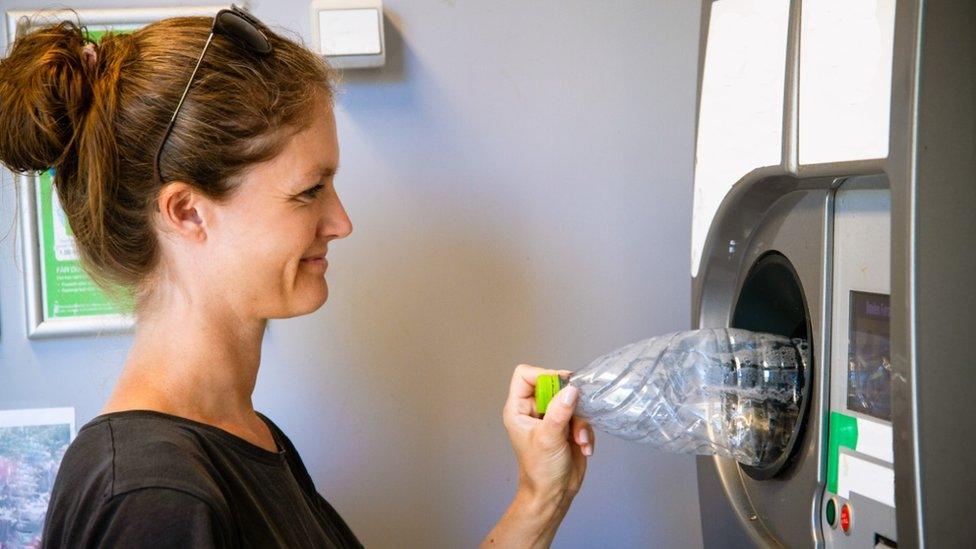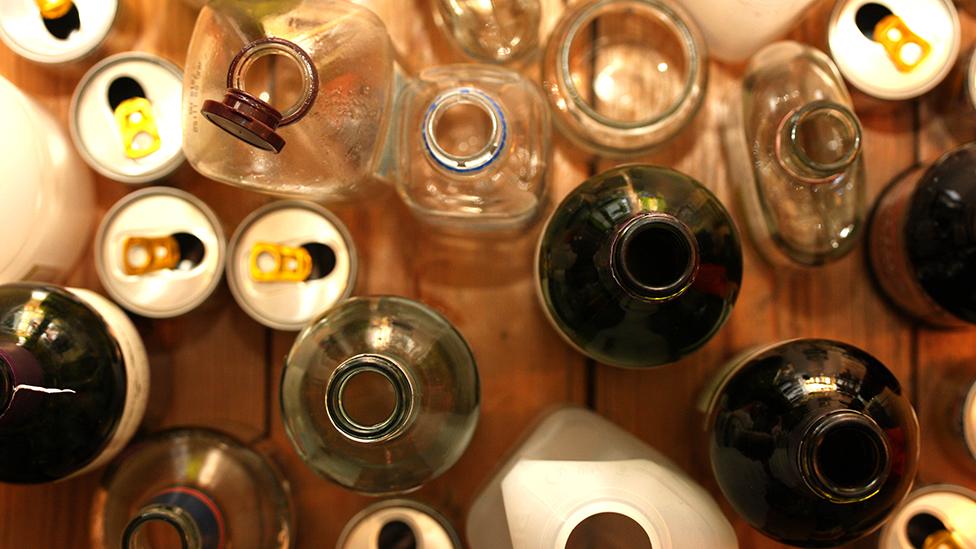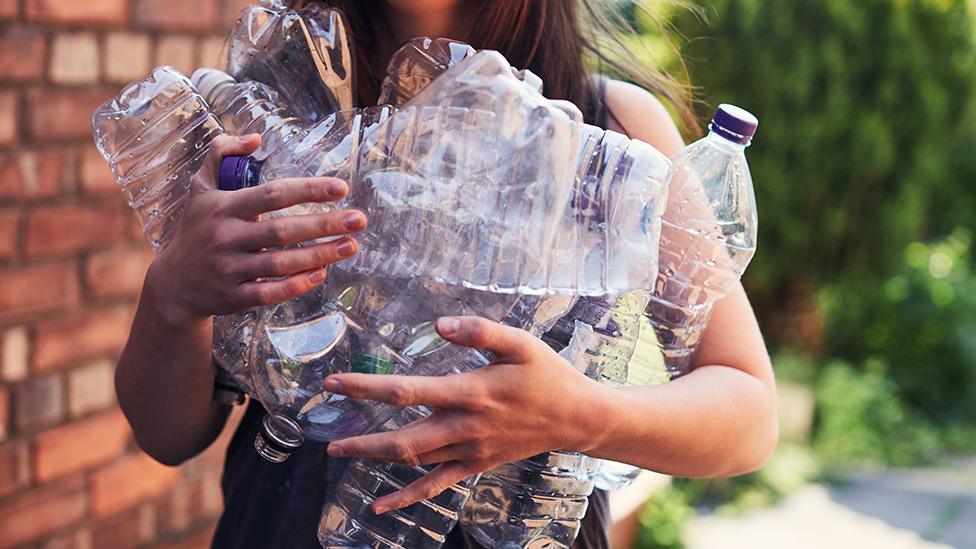Bottle deposit scheme: MSPs suggest a 'variable rate'
- Published
- comments

Reverse vending machines would be introduced in Scotland
Scotland's deposit return scheme should have scope for a "variable rate" on charges for drinks containers, MSPs have said.
In May the Scottish government announced a fixed deposit of 20p would be added to some plastic, metal and glass drinks containers.
MSPs have now said larger bottles could incur a higher charge.
It follows advice that a flat rate levy could encourage sales of larger sizes or plastic bottles instead of cans.
The scheme is being brought in by the Scottish government as part of efforts to increase recycling.
Consumers will be able to recoup any deposit they pay by taking their empty containers to designated collection points many of which will make use of "reverse vending machines".
Members of the Scottish Parliament's environment, climate change and land reform committee said the scheme should be "as comprehensive as possible".
They said they were "content" with the proposed 20p deposit, but suggested the scheme's administrator should have the scope to vary this.
'Unintended consequences'
Last month the aluminium packaging industry said consumers would have to pay a £4.80 charge for a 24-can pack of soft drinks - and predicted that many would switch to buying four two-litre bottles, which would carry only an 80p deposit.
In a new report on the draft regulations, MSPs noted the "potential unintended consequences on plastics use and health impacts".
They said: "The committee considers that there should be scope for the scheme administrator to set a variable rate, for example, based on product size.
"Variable rates could be used in a number of ways to discourage materials switching or other unintended consequences, with 20 pence being the minimum level of deposit."
They asked ministers to set out an "indication of the likely time-frame for extension of the scheme".
The scheme was due to launch in Scotland in 2021, although experts have cast doubt on that timetable.
MSPs also wanted to know if the Scottish government can compel online retailers based outside of Scotland to participate in the initiative, and asked ministers to ensure the level of the deposit does not "adversely impact" poorer Scots.

Bottles and cans, as well as plastic drinking bottles will be included in the scheme for Scotland
The committee convener, SNP MSP Gillian Martin, said: "There is no doubting the ambition behind the introduction of the deposit return scheme in Scotland.
"And it is clear from those we heard from across the country that there is support for the scheme and its aims to help meet the challenging climate change targets and address the problems of litter, particularly in our marine environment.
"But for this scheme to be effective, we need to ensure that this operates in a way that is understandable and easy to use for the public and businesses alike."
She said they had asked the government, which has introduced draft regulations for the scheme, to ensure other materials could be added and to address the concerns of businesses.
Last month, business leaders told the committee the scheme was "open to potential fraud" and "unsustainable" for small firms.
About 40 countries worldwide - including Germany, Denmark and Sweden - operate deposit return schemes.
A Scottish government spokesman welcomed the report and noted "its overall support for the introduction of the scheme, which will help tackle climate change, reduce litter and deliver a more circular economy".
"We will carefully consider the report and will continue to work closely with our implementation advisory group, and directly with stakeholders, as we work to finalise the regulations," he said.
How will the scheme work and how will I get my deposit back?
The proposed 20p deposit will, in effect, be added to the price of a single-use drinks container bought from a shop.
The consumer will get their deposit back when they return the empty bottle or can to the retailer.
The scheme covers drinks containers between 50ml and three litres in volume, excluding milk bottles, cartons and pouches.
Businesses selling drinks which are opened and consumed on site - such as pubs and restaurants - will not have to charge the deposit to the public.
There will be two ways you can return your empty container - over the counter, or by using a reverse vending machine (RVM).
An RVM is a machine that scans containers when they are returned and then refunds your deposit.
The government says there will be a range of ways you can get your deposit back, for example cash at a till, a token or discount voucher or digitally. The returned containers are stored in the machine and are then collected for recycling.
As well as retailers and hospitality businesses, schools and other community hubs will be able to act as return locations.
- Published12 November 2019

- Published24 August 2019

- Published17 November 2021
